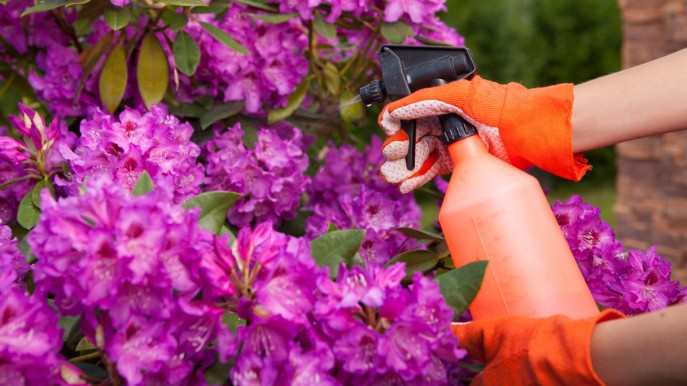Natural Pesticides: Safeguard Your Plants with DIY Solutions
Cultivating a vibrant garden or balcony comes with the constant threat of parasites. These tiny invaders can wreak havoc on plants, sucking the life out of them and, in severe cases, leading to their demise. Whether you have a flourishing garden or a modest balcony adorned with potted plants, parasites find their way everywhere. It’s crucial to act swiftly upon noticing the initial signs to prevent a full-blown infestation. If it’s too late for prevention, the search for the ideal pesticide becomes imperative.
Chemical vs. Natural Solutions While chemical insecticides are readily available and effective against parasites, they come with environmental pollution and health hazards. Using such products on fruits, vegetables, or aromatic herbs that find their way to your kitchen may not be the best choice. Opting for natural remedies is not only eco-friendly but also cost-effective, utilizing ingredients easily found in supermarkets.
Baking Soda: A Multi-Purpose Pest Repellent
Baking Soda as a Soil Barrier: A common household item, sodium bicarbonate (baking soda), surprisingly, has a repellent effect on insects and parasites. Sprinkle a small amount of baking soda around your plants, creating a protective barrier against earthworms, snails, and ants.
Baking Soda Spray: For a more potent solution against parasitic infestations, dissolve 3 tablespoons of baking soda in 4 liters of hot water. Transfer the mixture into a spray bottle and apply it to both leaves and surrounding soil. This concoction is not only effective against parasites but also helps combat fungal infections.
Enhanced Baking Soda Spray: For increased potency, prepare a solution by mixing 4 tablespoons of baking soda, 60 ml of olive oil, and 1 liter of water. Spray this mixture on leaves and around plants, avoiding fruits and flowers. For optimal results, apply early in the morning or late evening to prevent rapid water evaporation in the sun.
Alternative Natural Remedies
Marseille Soap: An effective remedy against scale insects or aphids is Marseille soap. Cut the soap into flakes, dissolve it in water over low heat, and let it cool. Transfer the mixture into a spray container and use it on leaves and flowers. For added efficacy, incorporate a few drops of Neem oil.
Propolis Solution: Propolis, produced by bees, contains flavonoids that boost plant metabolism and strengthen defenses. Create an aqueous solution by macerating 150 g of propolis in 1 liter of water with 1 g of soy lecithin. After filtering, mix it with an alcoholic solution, blending both for a potent pesticide to spray on plants.
Nettle Macerate: Create a natural insecticide with nettle macerate. Soak 1 kg of nettles (without roots) in 10 liters of water for a couple of days. Filter the solution and pour it into a spray bottle. Use it undiluted on plants, deterring insects. For an additional benefit, let the nettles soak longer to create an excellent fertilizer.
Garlic Macerate: Harnessing the antibiotic properties of allicin found in garlic, crush 75 g of garlic and steep it in 10 liters of hot water for at least 5 hours. Filter the mixture and transfer it into a spray bottle. Apply the garlic macerate directly to plants, preferably in the morning or evening.
Explore these natural pesticide options to safeguard your green haven from pests. Whether you choose baking soda, Marseille soap, propolis, nettle macerate, or garlic macerate, you’re opting for environmentally friendly and cost-effective solutions. Protect your plants and promote a thriving garden with these DIY remedies.




